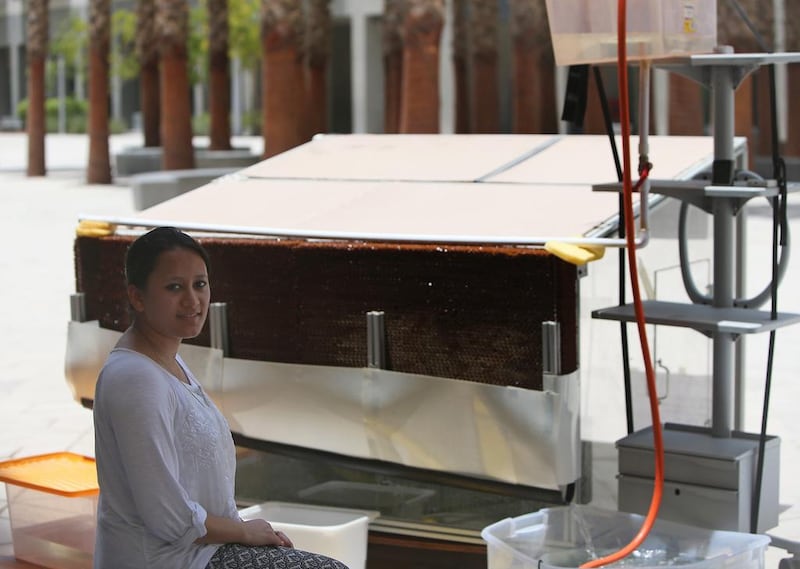ABU DHABI // Huge amounts of water could be saved in Abu Dhabi if a system that ensures sustainable farming is applied across the emirate.
It was recommended in a New York University Abu Dhabi report, which found that 54 per cent of Abu Dhabi’s recycled water was reused in 2012. The rest was thrown into the sea.
That percentage was expected to decrease as water use grew because of a lack of infrastructure to reuse recycled water, the report found.
Abu Dhabi has an ambitious environmental plan that called for reusing all its wastewater to irrigate farms and parks within four years, said Dr Sam Helwany, co-author of the study and professor of geotechnical engineering at the University of Wisconsin in the US.
“Currently, only 60 per cent of the 284 million cubic metres of treated sewage generated in Abu Dhabi each year is reused, according to the environment agency, and the remaining 40 per cent is discharged into the sea, wasting a precious resource,” Dr Helwany said.
The study proposed a farming method called Oasis that established “protected zones” for crop production near wastewater treatment plants. Its feasibility is being tested at the university’s Saadiyat Island campus.
“It will be used to investigate the effects of using treated wastewater on human health too,” Dr Helwany said. “It provides an excellent well-controlled environment for long-term testing of the effects of treated wastewater on several species of crops that are consumed by humans.”
Researchers will evaluate the use of treated wastewater for several crops and assess its effect on soil and the crops. The physical, chemical and biological effects of irrigation with treated wastewater will also be analysed.
Two or more plant plots irrigated with drinking and treated wastewater will be monitored over a five-year period. Nutrients, heavy metals and pathogens in the soil and crops will be analysed periodically.
Then, the researchers will provide recommendations based on their measurements and observations.
“Possible heavy metal accumulation in soil and presence of pathogenic organisms will require careful management of treated wastewater for its safe use in irrigation,” Dr Helwany said.
Reusing treated wastewater will not only save the emirate money, but its precious groundwater.
“Many farmers around the UAE rely on groundwater to irrigate their crops,” Dr Helwany said. “Unfortunately, this practice has prompted a dramatic and dangerous increase of the salinity of the groundwater in many areas across the UAE.”
Lakshyana K C, a recent NYUAD graduate in civil engineering, used the study as her capstone project.
“I’ve always been interested in topics of sustainability, like energy efficiency,” said the 21-year-old Nepali.
Experts agreed that new strategies should involve smaller desalination plants to support agriculture instead of large piping networks.
“The UAE is going to move into more controlled environmental vegetable production and it is looking for technologies that are both water and energy efficient, said Dr Shoaib Ismail, director of research and innovation at the International Centre for Biosaline Agriculture in Dubai.
“The Ministry of Climate Change and Environment, the Abu Dhabi Food Control Authority and many other institutions are working on this aspect.”
His centre has been working in the same field for the past two years.
“We have been testing a new controlled environmental net house,” he said. “The water needs are reduced by 65 per cent and energy by 85 to 90 per cent.”
cmalek@thenational.ae





